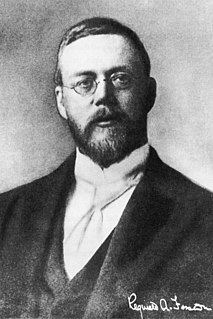A Quote by Chris Gardner
Salespeople are the most important people in any organization. Until a salesperson gets an order, nobody in the company has a job.
Related Quotes
I have my own theory about why decline happens at companies like IBM or Microsoft. The company does a great job, innovates and becomes a monopoly or close to it in some field, and then the quality of the product becomes less important. The company starts valuing the great salesmen, because they’re the ones who can move the needle on revenues, not the product engineers and designers. So the salespeople end up running the company.
You simply can't be tentative in a startup. You have to go for it at every chance you get. And if the leader of the organization is anxious, his or her fear pervades the organization. Everything comes from the top in a company. So if you are starting a company or building one, face your fears and move past them. It's critically important to your company.
A company is a multidimensional system capable of growth, expansion, and self-regulation. It is, therefore, not a thing but a set of interacting forces. Any theory of organization must be capable of reflecting a company's many facets, its dynamism, and its basic orderliness. When company organization is reviewed, or when reorganizing a company, it must be loked upon as a whole, as a total system.
I have observed several hundred salespeople who were taught to use deceptive practices like 'bait and switch' and encouraged to play negotiation games with customers. They were so stressed by this behavior that they suffered from a high incidence of alcohol and substance abuse, divorce, job-jumping, and low productivity. In the same industry, I have observed countless people who had been taught to sell with high integrity. Ironically, their customer satisfaction, profit margins, and salesperson retention were significantly higher.
In any bureaucratic organization there will be two kinds of people: those who work to further the actual goals of the organization, and those who work for the organization itself. Examples in education would be teachers who work and sacrifice to teach children, vs. union representative who work to protect any teacher including the most incompetent. The Iron Law states that in all cases, the second type of person will always gain control of the organization, and will always write the rules under which the organization functions.
A daughter of a King of Ireland, heard A voice singing on a May Eve like this, And followed half awake and half asleep, Until she came into the Land of Faery, Where nobody gets old and godly and grave, Where nobody gets old and crafty and wise, Where nobody gets old and bitter of tongue. And she is still there, busied with a dance Deep in the dewy shadow of a wood, Or where stars walk upon a mountain-top.
Until I came to IBM, I probably would have told you that culture was just one among several important elements in any organization's makeup and success - along with vision, strategy, marketing, financials, and the like... I came to see, in my time at IBM, that culture isn't just one aspect of the game, it is the game. In the end, an organization is nothing more than the collective capacity of its people to create value.


































